Halal Certification Provision
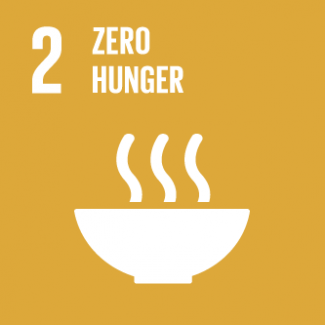
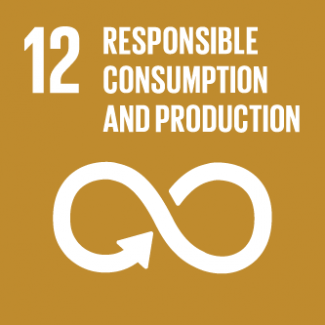
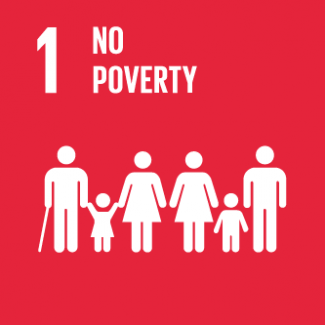
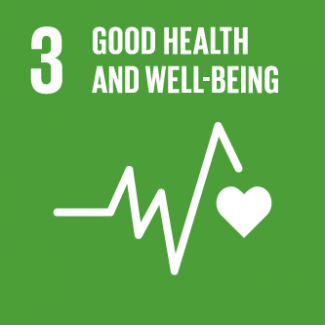
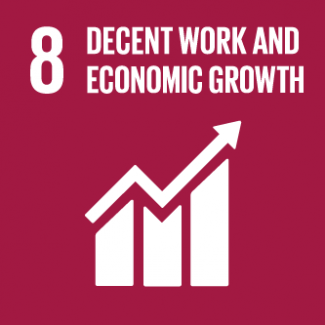
Business Model Description
Provide halal certification based on institutional framework, category-based schemes and eligibility criteria for food products produced, processed and traded within and across the Horn of Africa region in compliance with the common practices and regulatory measures defined by the relevant authorities.
Expected Impact
Enhance regional trade and economic integration in the Horn of Africa and contribute to Djibouti's food security.
How is this information gathered?
Investment opportunities with potential to contribute to sustainable development are based on country-level SDG Investor Maps.
Disclaimer
UNDP, the Private Finance for the SDGs, and their affiliates (collectively “UNDP”) do not seek or solicit investment for programmes, projects, or opportunities described on this site (collectively “Programmes”) or any other Programmes, and nothing on this page should constitute a solicitation for investment. The actors listed on this site are not partners of UNDP, and their inclusion should not be construed as an endorsement or recommendation by UNDP for any relationship or investment.
The descriptions on this page are provided for informational purposes only. Only companies and enterprises that appear under the case study tab have been validated and vetted through UNDP programmes such as the Growth Stage Impact Ventures (GSIV), Business Call to Action (BCtA), or through other UN agencies. Even then, under no circumstances should their appearance on this website be construed as an endorsement for any relationship or investment. UNDP assumes no liability for investment losses directly or indirectly resulting from recommendations made, implied, or inferred by its research. Likewise, UNDP assumes no claim to investment gains directly or indirectly resulting from trading profits, investment management, or advisory fees obtained by following investment recommendations made, implied, or inferred by its research.
Investment involves risk, and all investments should be made with the supervision of a professional investment manager or advisor. The materials on the website are not an offer to sell or a solicitation of an offer to buy any investment, security, or commodity, nor shall any security be offered or sold to any person, in any jurisdiction in which such offer would be unlawful under the securities laws of such jurisdiction.
Country & Regions
- Djibouti: Djibouti (City)
- Djibouti: Arta
Sector Classification
Services
Development need
Djibouti's economy is dominated by the services sector generating 70% of growth (5). Transport services, especially port activities, are the main growth source and employ most of the workforce (1). As services are becoming more tradable, expanding and diversifying international service exports provide significant opportunities for developing least developed countries (2).
Policy priority
The authorities are continuing the country's development with the goal of setting up a regional hub for trade, logistical and financial services (3). One such attempt is the inauguration of the Djibouti International Free Trade Zone (DIFTZ) in 2018, which is set to be the largest free trade zone in Africa once complete (9).
Gender inequalities and marginalization issues
Consumer services are key to promoting inclusive growth. They provide jobs for the poor, form the backbone of the economy, and offer key opportunities for growth through trade in Djibouti (6).
Investment opportunities introduction
Strong export growth especially in transport and logistics services is expected to improve the current account balance to 2.6% of GDP by 2024. An output growth of 7-8% is expected given the country's strategic location and potential to serve the East African region, especially with logistics and transport-related services (4).
Key bottlenecks introduction
Value added by the services sector, which usually generates 70% of Djibouti's growth, increased only 2% in 2020 compared with 8.2% in 2019 due to the COVID-19 pandemic (5). The absence of efficient services, such as telecom, internet, finance, accounting, legal services and transportation and logistics, hinders overall economic growth and business operations (2).
Consumer Services
Development need
Djibouti's economy is heavily dependent on imports due to the underdeveloped industrial and agricultural sectors, and a large number of companies operate in import and trade activities (8). Future development of the country requires its transformation into a hub for trade, logistics and related services (3).
Policy priority
Djibouti seeks to position itself at the heart of the African trade. The Djibouti International Free Trade Zone (DIFTZ) is set to be the largest free trade zone in Africa once complete (9). Among the priorities of the National Strategy for Social Protection is the promotion of sustainable growth and diversifying the economy through key sectors, including trade (10).
Gender inequalities and marginalization issues
Fewer opportunities for women to participate in trade-related jobs and high levels of unemployment can have a serious impact on the economy, leading to lower consumption, higher poverty and declining well-being of women and their families (7).
Investment opportunities introduction
The Horn of Africa Initiative has launched the Multi-Donor Trust Fund (MDTF) with a capital of Euro 30 million, which includes support for More Trade, More Growth, More Jobs focusing on trade and economic integration covering trade facilitation, regional value chains, and improvements in the investment climate (11).
Key bottlenecks introduction
Prevalence of illicit and informal trade especially in the borderland regions, cross-country clan and ethnic affiliations hindering activity, inadequate public and private investment to support trade are challenges within the consumer services subsector (12).
Professional and Commercial Services
Pipeline Opportunity
Halal Certification Provision
Provide halal certification based on institutional framework, category-based schemes and eligibility criteria for food products produced, processed and traded within and across the Horn of Africa region in compliance with the common practices and regulatory measures defined by the relevant authorities.
Business Case
Market Size and Environment
USD 50 million - USD 100 million
< 5%
Sheep and goats and other animals account for 46.6% of Djiboutian exports in 2019 with an export value of USD 62.2 million. Sheep and goat meat accounted for 0.17% of exports in the same year with an export value of USD 230,000. Halal certification is forecast to increase added value and trade (16).
Muslims spent USD 2.02 trillion globally in 2019 across the food, pharmaceutical, cosmetics, fashion and media sectors; halal consumption across the globe is forecasted to reach USD 2.4 trillion by 2024, at a 5-year compound annual growth rate (CAGR) of 3.1% (19).
Export of livestock from Somalia to the Middle East represents one of the largest concentration of live anmial trade in the world. In 2011, more than three million live animals were exported from Somaliland alone, a large percentage targeted to Saudi Arabia during the annual religious pilgrimage period (18).
Indicative Return
> 25%
A sample of 85 SMEs in Suraka City, Indonesia, as an industry benchmark for the business model, found the mean profit margin of halal certified businesses as 33.2%, ranging between 20-50% (33).
Investment Timeframe
Medium Term (5–10 years)
Based on the business model orientation, a medium term investment timeframe is expected.
Ticket Size
USD 500,000 - USD 1 million
Market Risks & Scale Obstacles
Business - Business Model Unproven
Business - Supply Chain Constraints
Market - Highly Regulated
Impact Case
Sustainable Development Need
Djibouti lacks an established halal certification framework despite the growing demand for halal food and a large share of Muslim population, standing at over 90% in Djibouti and 33% in the Horn of Africa (35).
Djibouti is burdened by high food insecurity with one in ten people at risk (36), for which halal food products provide an alternative in terms of cleanliness in quality and sanitation (20).
The Horn of Africa lacks a strategy and base for halal processes and operations, despite the fact that the region could adapt to and benefit from the growing Islamic economy by taking advantage of its strategic location (21).
Gender & Marginalisation
The lack of halal food certification mechanisms affect women unevenly as household food-related labor falls universally and unevenly on women. Women consumers are generally more concerned about food choices and feeding their family with clean and healthy food (22).
Expected Development Outcome
Establishment of a regional halal certification programme ensures the provision of expert services that audits products, additives, preparation and processing methods, cleaning and health conditions with strict safety rules (23).
The certification ensures to Muslim customers that products are halal and are in accordance with shariah law, following the appropriate hygiene and sanitation procedures (24).
The halal certification renders Djibouti and the Horn of Africa access to the global halal economy and the Muslim consumer base in the region and beyond.
Gender & Marginalisation
A nation-wide halal certification programme benefits especially women who are largely responsible for household food-related labor in Djibouti.
Primary SDGs addressed

2.1.1 Prevalence of undernourishment
2.2.1 Prevalence of stunting (height for age <-2 standard deviation from the median of the World Health Organization (WHO) Child Growth Standards) among children under 5 years of age
18.9% (2017) (26).
Prevalence of stunting in children under 5 years of age 31.01% (2019) (25).
The long-term objective globally is a value of 0 (25).
The long-term objective globally is a value of 0 (25).

12.1.1 Number of countries developing, adopting or implementing policy instruments aimed at supporting the shift to sustainable consumption and production
N/A
N/A
Secondary SDGs addressed



Directly impacted stakeholders
People
Gender inequality and/or marginalization
Corporates
Public sector
Indirectly impacted stakeholders
People
Corporates
Outcome Risks
Focus on halal products may hinder Djibouti's export potential to non-Muslim markets.
Impact Risks
Lack of understanding of the halal certification process may hinder businesses obtaining certification despite other requirements being met (27).
Human error in the halal supply chain structure or exposure to non-halal products may result in integrity issues, which could hinder the uptake of the certification and limit the expected impact (27).
Impact Classification
What
Halal certification provides a label of assurance for products' compatibility with halal standards, and as a consequence enhances regional trade and contributes to food security.
Who
Muslim consumers and overall population benefit from increased product quality and safety standards associated with the halal certification scheme.
Risk
While the model of halal certification is proven, risks associated with human resources, processing, logistics, raw material and traceability require consideration.
Impact Thesis
Enhance regional trade and economic integration in the Horn of Africa and contribute to Djibouti's food security.
Enabling Environment
Policy Environment
Vision Djibouti 2035, 2014: Seeks to transform the country into a logistics and trade center for the whole of East Africa and render Djibouti a middle income economy (28).
Strategy for Accelerated Growth and Employment Promotion (SCAPE) 2015-2019, 2014: Acknowledges need to ensure the quality of products and sets the goal to modernize legislation and regulations and to reinforce intervention for competitiveness, normalization, certification and product quality (29).
Primary Sector Development Plan 2011-2018, 2010 and National Food Security Program 2012-2017, 2011: Include availability of high nutrition and sanitary quality food and ensuring their provision to the most vulnerable populations among their key goals (30).
Financial Environment
Other incentives: The Djibouti Chamber of Commerce (CCD) issued an announcement for implementing the Halal Certification Project, which pledges to take steps to prepare for the new halal certification programme (32), from which the private sector may benefit.
Regulatory Environment
Law No. 90, n.d.: Amending Law No. 45, establishes the Djiboutian Food Security Company (SDSA) as a public company placed under the supervision of the State Secretariat to the Prime Minister, responsible for National Solidarity (31).
Order No. 2000-0725 / PR / MAEM: Defines hygiene conditions in the handling of fishery products establishments; fishery and aquaculture products intended for human consumption must have been subjected to a sanitary control and have been handled, packaged in approved establishments (31).
Law No. 28, n.d.: Contains provisions relating to food protection, fraud prevention and consumer protection, and establishes freedom of prices and competition (31).
Marketplace Participants
Private Sector
East Africa Bank, Saba African Bank, Salaam African Bank,, Centre Zakat, Islamic Religious Council of Singapore (MUIS), Turkey Halal Accreditation Agency (HAK), Al-Halal Asia Foundation.
Government
Ministry of Economy and Finance in charge of Industry, Ministry of Health, Ministry of Agriculture, Ministry of Islamic and Cultural Affairs, Djiboutian Food Security Company (SDSA).
Multilaterals
Intergovernmental Authority on Development (IGAD), Food and Agricultural Organization (FAO), Islamic Chamber of Commerce, Industry and Agriculture (CICIA).
Non-Profit
Djibouti Chamber of Commerce.
Public-Private Partnership
Djiboutian Food Security Company (Société Djiboutienne de Sécurité Alimentaire, SDSA).
Target Locations
Djibouti: Djibouti (City)
Djibouti: Arta
References
- (1) International Trade Centre (ITC). Services Snapshot Djibouti. 2012. https://www.intracen.org/uploadedFiles/intracenorg/Content/Redesign/Sector/Global_Services_Network_blog/Djibouti.pdf.
- (2) International Trade Centre (ITC). Trade in Services. 2021. https://www.intracen.org/itc/sectors/services.
- (3) AfDB, OECD, UNDP and UNECA. African Economic Outlook - Djibouti. 2012. https://www.afdb.org/fileadmin/uploads/afdb/Documents/Publications/Djibouti%20Full%20PDF%20Country%20Note.pdf.
- (4) International Monetary Fund (IMF). Staff Report and Statement by the Executive Director for Djibouti. 2019. https://www.imf.org%2F~%2Fmedia%2FFiles%2FPublications%2FCR%2F2019%2F1DJIEA2019002.ashx&usg=AOvVaw1RvQ6tvZvxKs6LwvWu6SyA.
- (5) African Development Bank (AfDB). Djibouti Economic Outlook. 2021. https://www.afdb.org/en/countries-east-africa-djibouti/djibouti-economic-outlook.
- (6) International Centre for Trade and Sustainable Development. The Gender Dimensions of Services. 2016. https://www.tralac.org/images/docs/10585/the-gender-dimensions-of-services-ictsd-september-2016.pdf.
- (7) UNCTAD, UN Women & EU. Gender and Trade Assessing the Impact of Trade Agreements on Gender Equality: Canada-EU Comprehensive and Trade Agreement. 2020. https://unctad.org/system/files/official-document/UNWomen_2020d1_en.pdf.
- (8) Chambre de Commerce de Djibouti. Panorama du Secteur Privé Djiboutien. 2015. http://ccd.dj/panorama-du-secteur-prive-2015.
- (9) Djibouti Ports & Free Zones Authority. Djibouti International Free Trade Zone. 2019. https://dpfza.gov.dj/facilities/Free-trade-area/djibouti-international-free-trade-zone.
- (10) Republic of Djibouti Ministry of Social Affairs and Solidarity. Strategie Nationale De Protection Sociale (2018 - 2022). 2017. https://sociales.gouv.dj/uploads/Categorie/a67a59e47f5299fa40143635aa82722f.pdf.
- (11) Horn of Africa Initiative, June. The Horn of Africa Initiative Launches its Multi-Donor Trust Fund (MDTF). 2021. https://hoainitiative.org/the-horn-of-africa-initiative-launches-its-multi-donor-trust-fund-mdtf.
- (12) World Bank. From Isolation to Integration: The Borderlands of the Horn of Africa. 2020. https://reliefweb.int/sites/reliefweb.int/files/resources/The-Borderlands-of-the-Horn-of-Africa.pdf.
- (13) Majlis Ugama Islam Singapura (MUIS). Annual Report. 2020. https://www.muis.gov.sg/-/media/Files/Corporate-Site/Annual-Reports/Muis-AR2020.pdf.
- (14) Republic of Turkey. Halal Accreditation Agency History. https://english.hak.gov.tr/about-us/history.
- (15) Al Halal Asia. About Us. 2021. https://www.alhalalasia.org/about.
- (16) Observatory of Economic Complexity (OEC). Historical Data, Yearly Exports. 2021. https://oec.world/en/profile/country/dji.
- (17) Halal Industrial Park. A Case for Investment in the Western Cape Halal Manufacturing Industry. 2020. https://www.elsenburg.com/sites/default/files/Halaal%20Industrial%20Park/HIP%20final%20report/HIP%20Phase%202_Final%20reports/1_General%20Investment%20Case/HIP_General%20Investment%20Case_Final%20Report.pdf.
- (18) Little, Peter D. Formal or Informal, Legal or Illegal: The Ambiguous Nature of Cross-border Livestock Trade in the Horn of Africa. 2015. https://www.tandfonline.com/doi/full/10.1080/08865655.2015.1068206.
- (19) DinarStandard. State of the Global Islamic Economy Report 2020/21. 2020.
- (20) Amana Investment Fund. About Halal Market Economy. 2019. https://amanafund.com/halal-market-economy.
- (21) Islamic Development Bank (IsDB). Rapport Sur La Finance Islamique Djibouti. 2018. https://irti.org/wp-content/uploads/woocommerce_uploads/2019/11/504.pdf.
- (22) Atalan-Helicke, Nurcan. Sustainable Halal? The Intersection of Halal, Organic and Genetically Engineered Food in Turkey. 2020. https://brill.com/view/journals/soi/8/3-4/article-p343_343.xml?language=en&ebody=Abstract%2FExcerpt.
- (23) RoyalCert. Halal Certification. 2020. https://www.royalcert.com/halal-certification.
- (24) Khan, Modh Imran & Dr. Abid Haleem. Understanding “Halal” and “Halal Certification & Accreditation System” - A Brief Review. 2016. https://saudijournals.com/media/articles/SJBMS-1132-42.pdf.
- (25) Sustainable Development Report, 2021. Country Profiles: Djibouti. https://dashboards.sdgindex.org/profiles/djibouti.
- (26) Trading Economics. Djibouti - Prevalence Of Undernourishment (% Of Population). 2017. https://tradingeconomics.com/djibouti/prevalence-of-undernourishment-percent-of-population-wb-data.html.
- (27) Azmi, Fadhlur Rahim et al. Type of Risk in Halal Food Supply Chain: A Review. 2020. https://www.researchgate.net/publication/343962891_Type_of_risks_in_halal_food_supply_chain_a_literature_review.
- (28) Republic of Djibouti. Vision Djibouti 2035. 2014. http://ccd.dj/w2017/wp-content/uploads/2016/01/Vision-Nationale.pdf.
- (29) Government of the Republic of Djibouti. Strategie de Croissance Accélérée et de Promotion de l'Emploi. 2015. https://economie.gouv.dj/wp-content/uploads/de95d383afef8bcbe0a3bc609a7f5c76.pdf.
- (30) Ministry of Foreign Affairs and International Cooperation & UNDP. Mid-Term Evaluation Of The Istanbul Program Of Action (2011-2020). 2015. http://unohrlls.org/custom-content/uploads/2015/12/Djibouti-National-Report-to-the-Midterm-Review.pdf.
- (31) Michigan State University, International Food Law and Regulations: Eastern Africa. 2021. https://libguides.lib.msu.edu/c.php?g=212831&p=1543212.
- (32) Chambre de Commerce de Djibouti. March 2021 Newsletter. 2021. http://ccd.dj/w2017/wp-content/uploads/2021/03/newsletter2021-01.pdf.
- (33) Giyanti, Ida & Erna Indriastiningsih. Impact of Halal Certification on The Performance of Food Small Medium Enterprises. 2019. https://journals.ums.ac.id/index.php/jiti/article/view/7242/5017.
- (34) World Food Programme (WFP). Urban In-Depth Emergency Food Security Assessment. 2011. https://reliefweb.int/sites/reliefweb.int/files/resources/Full_Report_2172.pdf.
- (35) Kettani, Houssain. Muslim Population in Africa: 1950 – 2020. 2010. http://www.ijesd.org/papers/27-D436.pdf.
- (36) Food and Agricultural Organization. 2021. Djibouti. https://www.fao.org/emergencies/countries/detail/en/c/151584.















